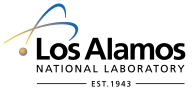Detecting Radiological Threats in Urban Areas - Completed
March 8th - April 19th 2019
Join, learn, and compete for $100,000 in prizes!





Overview
Our goals are to spur new, innovative thinking in radiation detection algorithms by engaging a broader community. For this competition, we have used radiation transport simulations to create thousands of data sets resembling typical radiological search data collected on urban streets in a mid-sized U.S. city. Each data set – called a run – simulates the detection events received by a standard thallium-doped sodium iodide – NaI(Tl) – detector, specifically a 2”×4”×16” NaI(Tl) detector, driving along several city street blocks in a search vehicle. All of the runs contain data on radiation-detector interaction events from the natural background sources (roadway, sidewalks, and buildings), and some of the runs also contain data arising from non-natural extraneous radiation sources.

The event data created for this competition is derived from a simplified radiation transport model – a street without parked cars, pedestrians, or other ‘clutter’, a constant search vehicle speed with no stoplights, and no vehicles surrounding the search vehicle. In fact, the search vehicle itself is not even in the model – the detector is moving down the street by itself, 1 meter off the ground. This simple model provides a starting point for comparing detection algorithms at their most basic level.
Objective
The data provided are separated into two sets: a training set for which a file with the correct answers (source type, time at which the detector was closest to the source) is also provided, and a test set for which you will populate and submit an answers file for online scoring. For each run in the test set, you’ll use your detection algorithm on the event data to determine (1) whether there is a non-natural extraneous source along the path (the detection component), and if so, (2) what type of source it is (identification) and (3) at what point the detector was closest to it during the run (location — which in this competition will be reported in seconds from the start of the run).
Prize Distribution
| Place | Prize Amount |
|---|---|
| 1st Place | $25,000 |
| 2nd Place | $18,000 |
| 3rd Place | $15,000 |
| 4th Place | $12,000 |
| 5th Place | $7,500 |
| Place | Prize Amount |
|---|---|
| 6th Place | $6,500 |
| 7th Place | $5,500 |
| 8th Place | $4,500 |
| 9th Place | $3,500 |
| 10th Place | $2,500 |
Requirements to Win a Prize
Provide your algorithm, within 7 days after announcement of results, along with any assets/materials necessary to use and train it, and a write-up explaining the training, using, and theory behind your approach.
